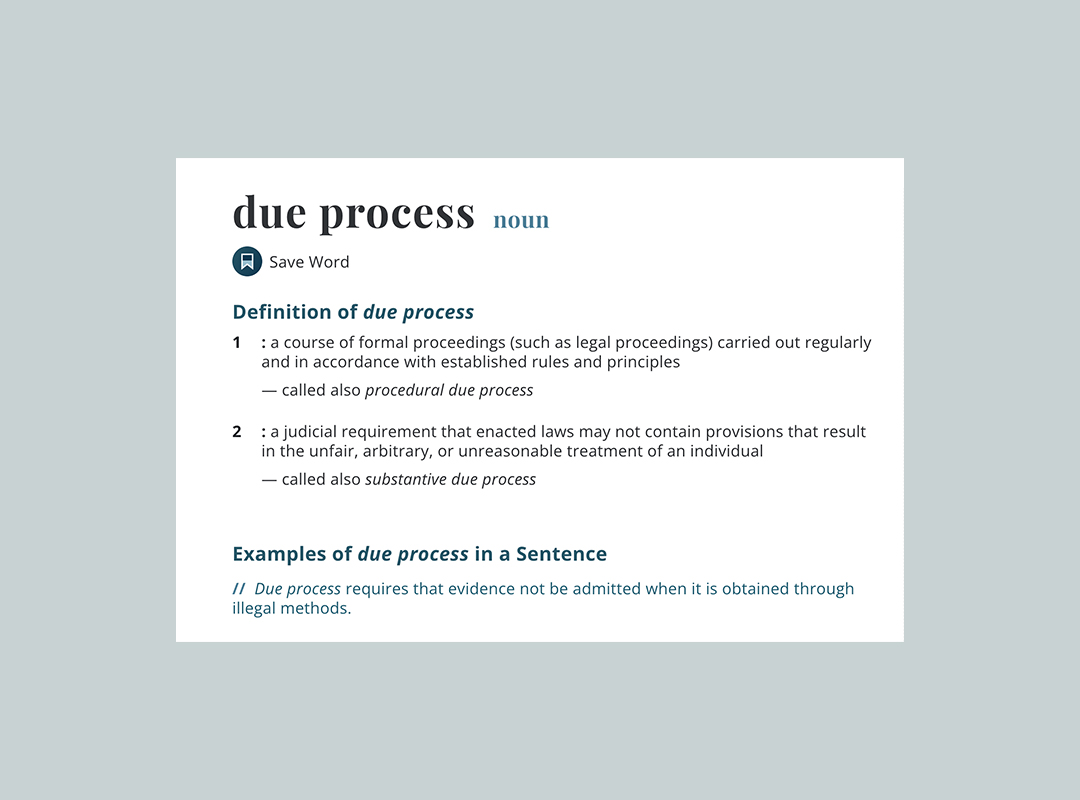Lawyer Speak

Ask Me Anything
December 28, 2021
One on One
November 30, 2021
While common in law, these terms are most uncommon to the everyday person who may one day need legal assistance. The sampling below will help to get you comfortable with legal terms heard in the courtroom or while discussing the details of your case.
- Act of God - Natural phenomena whose effects could not be prevented through the exercise of reasonable care and foresight (e.g., flood, earthquake, tornado)
- Affidavit - A voluntary declaration of facts written down and sworn to by the declarant before an officer authorized to administer oaths.
- Burden of Proof - The duty of the prosecution or plaintiff to convince the fact-finder to view the evidence in a way that favors that party. For example, in a criminal trial, the prosecution bears the burden of proof beyond a reasonable doubt. Thus, the prosecution must provide evidence that leaves the jury firmly convinced that the defendant is guilty. In contrast, a plaintiff in a civil case bears the burden of proof by a preponderance of the evidence, or, more likely than not. In essence, the prosecutor and plaintiff are asking the jury to find in their favor, exposing the defendant to deprivation of life, liberty, and/or property. To achieve such a monumental outcome, they must meet their respective burdens of proof.
- Hearsay - An out-of-court statement offered for the truth of the matter asserted. Though the general rule is hearsay is inadmissible in trial, there are, in fact, numerous exceptions to the rule that permit certain types of hearsay. For example, in a criminal trial, any admissions made by the defendant to witnesses or law enforcement may be introduced as an admission of a party opponent. This is why, the number one piece of advice from any criminal defense attorney will always be: do not speak about the facts of a case with anyone except your lawyer.
- Malum in se - “Evil in itself.” Something inherently and universally considered evil (e.g. rape, robbery, murder).
- Mens rea - The state of mind that the prosecution, to secure a conviction, must prove that a defendant had when committing a crime.
- Bona fide - “In good faith.”
- Dismissal - When the prosecution or plaintiff drops the criminal charge(s) or civil cause(s) of action against the defendant.
- Discovery - This term can have two different meanings, both revolving around the same concept. The most literal meaning is the material (e.g. reports, audio, video, cell phone downloads) disclosed by a party, to their opponents, that establishes their case. Discovery can also refer to the pre-trial stage where the parties must disclose the material they intend to introduce at trial to their opponent.
- Litigation - Referring to the process of carrying on lawsuits or a specific lawsuit.
- Pleadings - Pleadings generally refer to the art of preparing a formal written statement in a lawsuit, or a document containing the written allegations of fact that each party is required to communicate to the opponent before trial, so that each will know what contentions must be met by the evidence. But in nonlawyers’ writing, pleading has come to refer to oral advocacy of a case in court.
- Precedent - A decided case that furnishes a basis for determining an identical or similar case that may arise later, or a similar question of law.
Photo by Merriam-Webster Dictionary
